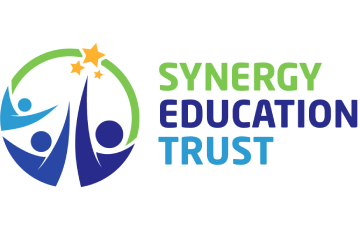English as an Additional Language (EAL)
At Boundary Primary School we celebrate our multicultural diversity. Some of our children come from homes where English is spoken as a second language. We have an increasing number of EAL pupils with English as an additional language. Ethnicities include Chinese and Polish, Portuguese, Indian, Saint Vincent and the Grenadines, Latvian and Filipino.
You can view our EAL policy by clicking here
EAL Support
‘I am very happy with the progress of my son. He came from a place where he never heard an English word and now he tries to speak English and it's all because of his teachers at Boundary. Thank you.’
Getting to Know the Pupils’ Needs
When a child joins our school, there will be an initial meeting with the parent/ carer to help us get to know the family, to understand the pupil’s starting point and context but most importantly, to get to know them as an individual.
We always try to find out about their personality, how proficient they are in their native language, their educational background (have they attended school before or have a educational needs or a disability (SEND) and how proficient the children’s parents are at speaking English. This helps us to identify the skills the pupil needs to develop in order to effectively access our curriculum.
The children in child’s class will spend some time learning about the culture of the country they are from and will learn phrases to help welcome the child.
Organising our Classrooms
We will seat new learners who have EAL with the most fluent English speakers in the class or with another EAL learner with the same first language, if the other pupil has a much higher fluency in English.
Support staff will work with pupils who have very low levels of English and will have had the appropriate training to help them effectively
Whole-class Activities
Class teachers will ensure that they are maintaining a high level of cognitive challenge while also allowing pupils to access the same content as the rest of the class. They will allow pupils to express their learning in a different way, for example by using:
- Visual cues
- Gap-fill exercises
- Sentence frames
- Word cards
Targeted Interventions
Learners with EAL will take part in whole-class teaching sessions as much as possible.
However, pupils benefit from a more focused small group language intervention. For example, learning the vocabulary and context that is needed for the main lesson.
Interventions are carefully planned so pupils aren’t missing out on other learning experiences. Music, art and PE, for example, are good social and language-learning opportunities.
Phonics and Reading
Pupils who can’t read or speak English will have phonics/reading lessons to teach them how to decode words, learn new English vocabulary and understand books suitable for their reading level.
If you have any questions, please contact the school office and a member of staff will be happy to help.
The Bell Foundation
The Bell Foundation was established in 2012 and is working to overcome exclusion through language education in the UK. The Bell Foundation is a charity and focuses on children with English as an Additional Language. We have used their resources and online CPL to ensure our team have the appropriate skills to support EAL learners across school.
EAL Assessment Framework
At Boundary Primary School we are committed to providing support for our EAL children. We utilise the online platform of Flash Academy to baseline EAL students and to develop targeted intervention lessons. This innovative programme incorporates over 48 languages, employing a pedagogy centred on multimodal flashcards and lessons aligned with the UK curriculum. Such a multilingual approach significantly enhances the confidence of our EAL learners, enabling them to engage with the curriculum at their own level and in their native language.
Our strategy is designed to meet the individual needs of each child, allowing them to strive towards their full potential. Students’ progress through proficiency bands A to E, with assessments focusing on reading, writing, speaking and listening skills, all guided by the Bell Foundation Framework. This comprehensive approach ensures that our EAL children receive the support necessary for their academic success.

